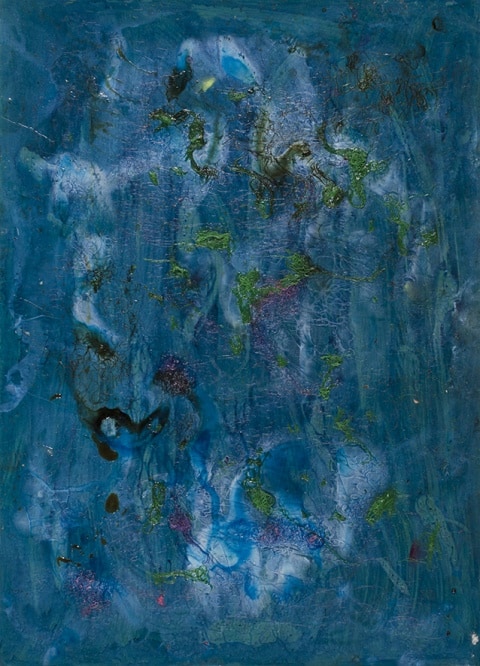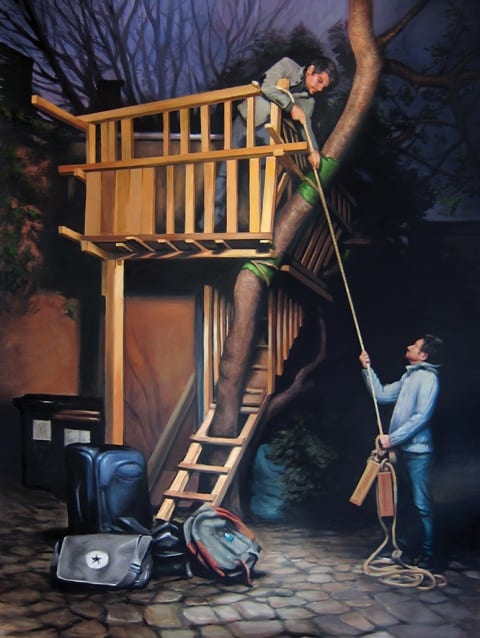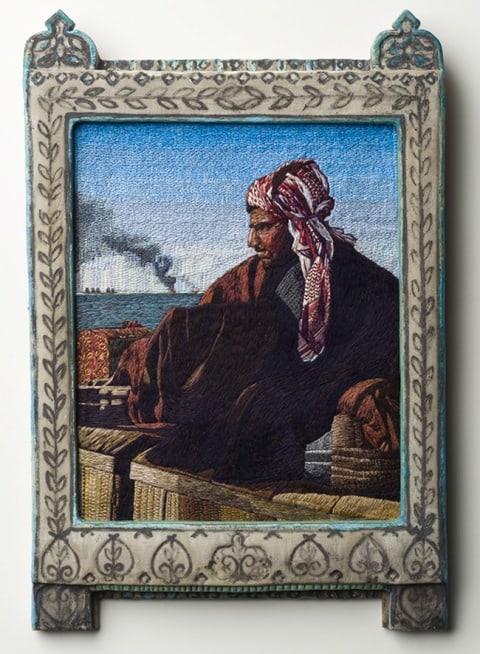A dancer and choreographer possessed with a stubborn creative drive, Mamela Nyamza’s work challenges many of the staid conventions of ballet. By Carl Collison
Mamela Nyamza, July 2010. Photo by Ant Strack “I want to turn balletupside-down,” says Mamela Nyamza with a mischievous grin that belies thedetermination behind it. Far from being a flippant anti-establishment rant,this statement perfectly encapsulates the ethos behind this young dancer andchoreographer’s work. Having started her career at the age of eight when shejoined the Zama Dance School in Gugulethu, this disarmingly beautiful youngCapetonian studied ballet at what is now the Tshwane University ofTechnology – “I felt it wouldprovide me with the best technique to become a good contemporary dancer,” shesays – before receiving a scholarship to New York’s Alvin Ailey American DanceCentre and later joining the State Theatre Dance Company. She soon, however,began finding the classical dance form’s limitations for self-expressionstifling.The 33-year-old’s love-hate relationship with this dance form is found in most of her work, it is most evident in her Dying Swan, a moving yet unsettlingrendition of Michel Fokine’s classic The Dying Swan (1905) inwhich she simultaneously utilises, toys with and subverts the conventions ofballet to remarkable, unnerving effect. In it she effectively challengesconventional and accepted notions of beauty and how, in reality, many womenfeel they fall short of these sought-after ideals. In Nyamza’s work the use andsubversion of ballet’s conventions is, however, not done glibly or purely forits own sake but is, more often than not, used as a point with which tocorrelate her rejection of the restrictions imposed upon her by other aspectsof her life as a young, black woman. In Hatched (2010), whichdebuted at this year’s Grahamstown National Arts Festival, she takes anautobiographical look at how her deliberately shirking the conventions of marriageand religion as well as her Xhosa culture and traditions has affected her lifeas a young artist, mother (she performs along with her son, Mandla) and woman.Shift (2010), her British Council-sponsored piece which featured as part of this year’s Spier Contemporary, took a pejorative and often dry-humoured look at therealities faced by women in sports. Here Nyamza sagaciously covered suchsensitive ground as the horrifying death of Eudy Simelane (the openly lesbianBanyana Banyana player who was brutally raped, beaten and stabbed 25 times for”acting like a man”) and Castor Simenya (who, Nyamza feels “was controlled bythe media”) to the sexual objectification of the Williams sisters, Venus andSerena. Her 2009 production Kutheni, too, explored townshiphomophobia in a deeply affecting manner by using the brutal double murder oflesbians Sizakele Sigasa and Salome Masooa in Meadowlands, Soweto, as a pointof departure.Though she acknowledges today “issues related to being a woman are central to my work,” she also “likes to turn realities and events into performances”. In Mendi, for example, which formed part of the Baxter Theatre’s 2009 Out the BoxFestival, Nyamza focussed on the warship SS Mendi, which sank during World WarOne – the majority of the troops on board were black South African men.Arguably one of her most haunting and avant-garde pieces to date (the piecefeatured very little actual dance movements and the dialogue was scriptedentirely in Xhosa) it was received with a mixture of derision and praise. Shestruggles to disguise her obvious disappointment with this reception, stating:”the younger members of the audience were really appreciative of it while theolder ones simply didn’t get it”. She ascribes the lacklustre responses to the fact that “Cape Town is still very much a ‘ballet city’. It really is very conservative.” This status quo has onlyserved to fuel her self-proclaimed “stubborn” creative drive. “Because I feelwe should be engaging in debates around what we are shown, [it] really onlyprovoked me to produce more avant garde work. And, because I want people to always ask ‘why?'” she says before adding, with characteristic mischievousness,”I will always take such risks. I will always be a risk-taker.” Carl Collison is a journalist based in Cape Town
{H}



